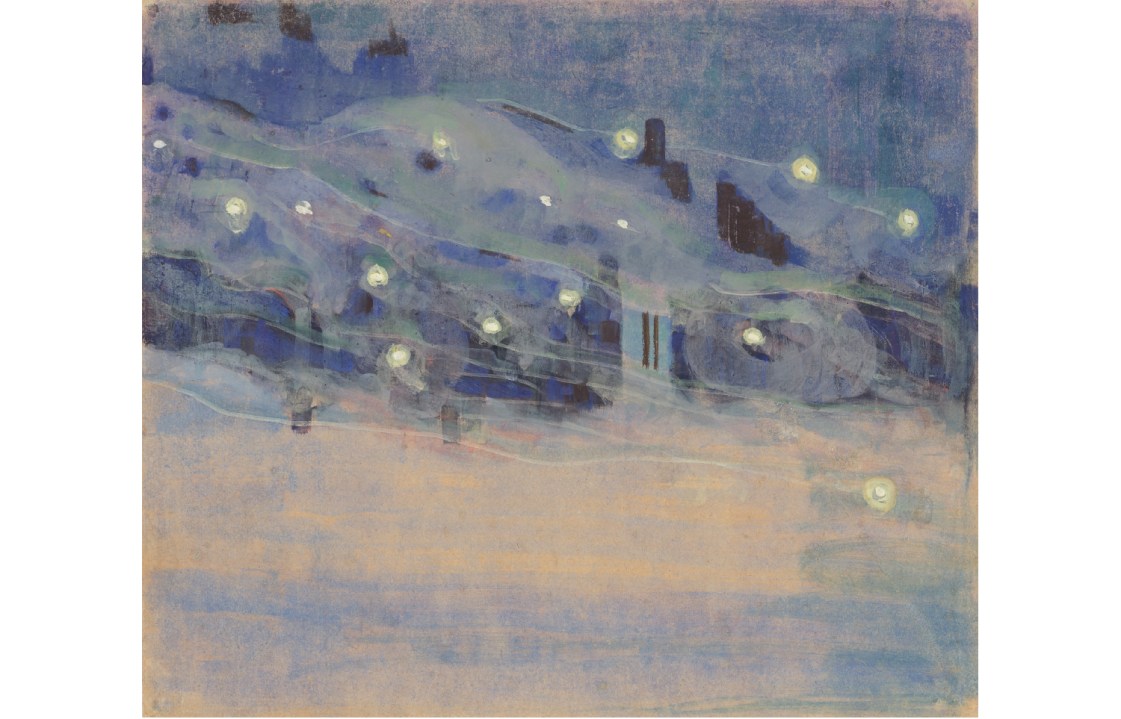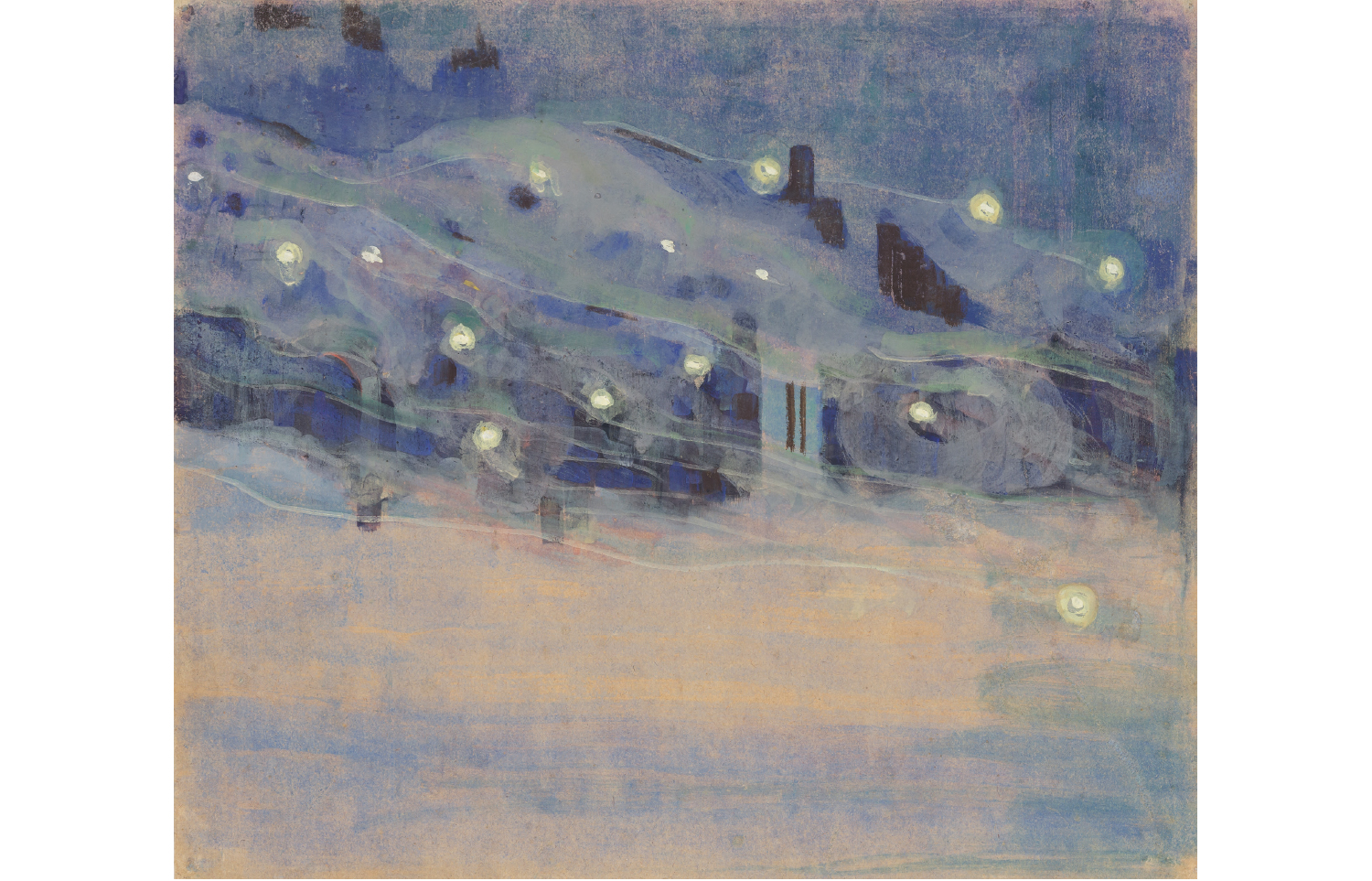Trivia question: name a famous Lithuanian. Google came up with four I’d never heard of and one I had: Hannibal Lecter. It seems that Lithuanians are famous only in Lithuania unless they’re the monstrous inventions of non-Lithuanians – an injustice Dulwich Picture Gallery is helping to correct with its M.K. Ciurlionis exhibition.
Mikalojus Konstantinas Ciurlionis is not just Lithuania’s most famous artist; he is also the country’s most famous composer. On his death in 1911 he left more than 400 musical compositions and more than 300 artistic ones, the latter squeezed into six short years before pneumonia carried him off aged 35. The son of a church organist, he was a musical prodigy, mastering the piano aged five and the organ aged six. But in 1902, after completing his musical studies in Warsaw and Leipzig, he decided to become an artist.
His ‘Sonata of the Stars’ puts him in contention for the title of inventor of abstraction
As a music student he had pursued interests in the natural sciences, astronomy, geology, philosophy and psychology, and his teacher at Warsaw’s School of Fine Arts, the Polish painter Kazimierz Stabrowski, was an adherent of the theosophical movement founded by the Russian mystic Madame Blavatsky.

Get Britain's best politics newsletters
Register to get The Spectator's insight and opinion straight to your inbox. You can then read two free articles each week.
Already a subscriber? Log in







Comments
Join the debate for just $5 for 3 months
Be part of the conversation with other Spectator readers by getting your first three months for $5.
UNLOCK ACCESS Just $5 for 3 monthsAlready a subscriber? Log in